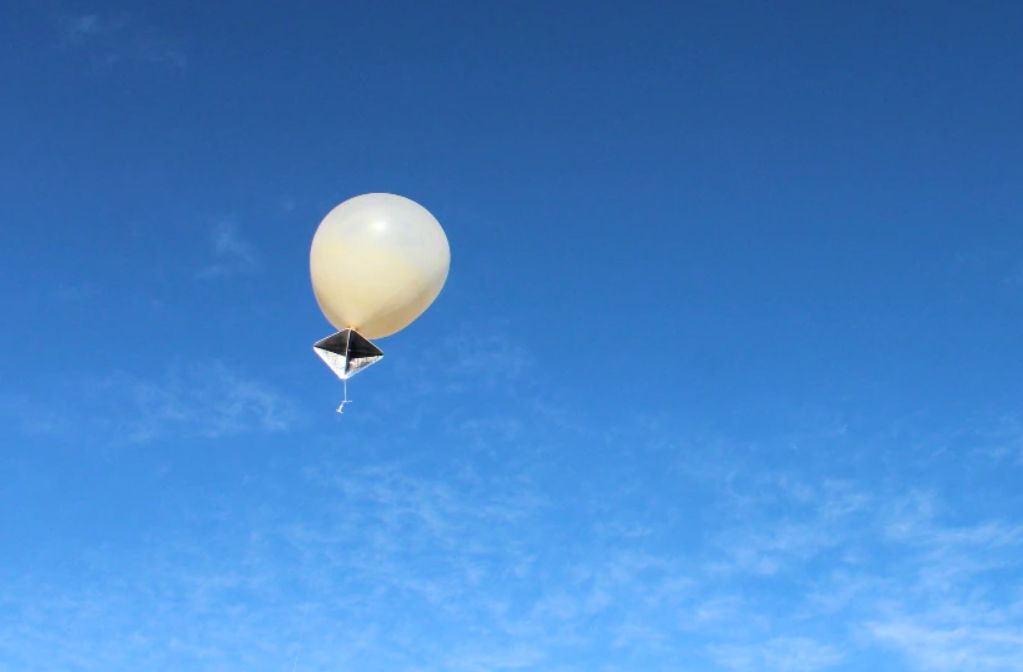Following the discovery of a possible Chinese spy balloon traveling across the United States and Canada, the Pentagon reported that the US shot down a fourth flying object at 20,000 feet above Lake Huron on February 12.
China Fires ‘Laser Weapons’ At Philippines Vessel; Not The 1st Time Beijing Used Dazzlers To Flex Muscles
The Pentagon informed that an F-16 shot down the object, employing the same AIM-9X Sidewinder missile as in the last three shootdowns. Pentagon officials assured that none of these objects shot down appeared to pose a military threat. However, there has been a proliferation of balloons being sent to the continent.
Intriguingly, even as the United States and Canada are actively fighting the menace of UFOs, Russia has now borrowed a fig leaf from this playbook and started infiltrating Ukrainian airspace with its balloons.
Ukraine alleges that the move is aimed at tiring out Ukrainian air defenses.
The Ukrainian Air Force Command announced on February 12 that Russian troops sent balloons with corner reflectors and an airborne reconnaissance vehicle, both of which were shot down by the Ukrainian military. The Command did not specify which recon drone was shot down by the air defense missile.
The spotting of a Russian balloon by Ukraine comes in the wake of such sightings in North America this month. The US shot down a suspected Chinese spy balloon off the Atlantic coast on February 4. Following that, US Air Force shot down many UFOs near the US-Canada border.
#UkraineWar #Ukraine #Russia
The Ukrainian Air Force has shot down a balloon launched by Russia: The Russian army used "several balloons with angular reflectors", as well as a reconnaissance drone over the sky of Dnepropetrovsk – AFU— 🛰️ War in Ukraine 🍉 (@EUFreeCitizen) February 12, 2023
Even though the officials have yet to determine who launched these UFOs, China and Russia would be under the American radar. Meanwhile, even China has claimed that US spy balloons have infiltrated its airspace on multiple occasions since January 2022.
At a time when the world is seeing an explosion in the “balloon controversy” with rival sides making accusations against one another, it may be the claims made by Ukraine that prove to be the most consequential as they come amid a fresh onslaught launched by Moscow last week.
The Ukrainian Air Force spokesman, Colonel Yuriy Ignat, suggested that these reflector-equipped balloons are intended to wear down Ukraine’s air defenses. It may be worthwhile to examine these claims made by the highest echelons of the Ukrainian Armed Forces.

Why Is Russia Sending Balloons To Ukraine?
The balloons are believed to have radar reflectors, which are intended to be used as a means of increasing visibility. The corner reflector is a passive device that directly reflects radio waves back toward the emission source, making it a valuable tool for calibrating radar systems.
The corner reflector is often made up of perpendicular plates crossing one another. Similar to large mirrors, these targets reflect radar energy back to the airborne sensors mainly used by enemies for radar tracking or radar spoofing.
The purpose of these corner reflectors here seems to be deceiving the approaching radar-guided missiles. The Ukrainian Air Force said, “Presumably, the goal was for the Ukrainian air defense to mistake these for an attack drone.”
Abhijit Iyer-Mitra, a senior fellow at the Institute of Peace and Conflict Studies (IPCS), explained, “It is a very old method. Flat surfaces reflect the radar waves the most, so the enemy sends in odd-shaped objects, mostly perpendicular sides up in the air. It will trigger every radar in the host country and is a normal decoy technique used for decades. It is very old technology.”
Russia has used corner radar reflectors for a long time in the ongoing conflict. In August 2022, EurAsian Times published an in-depth analysis of how Moscow was deploying an array of pyramidal radar reflectors in the water to the west of the Antonivsky bridge and near the rail bridge to confuse the Ukrainians.
Indian Air Force veteran and military analyst, Squadron Leader Vijainder K. Thakur (retd), told EurAsian Times: “Russian fighters fly air dominance patrol over the battlefront 24×7. They are invariably armed with Kh-31P ARM. Russian balloons are reportedly seen with corner reflectors to create a significant radar signature. Without corner reflectors, the balloon would have no radar signature.
“Anyone visually spotting the Russian balloon would likely report it to the authorities. The Ukrainian air force would need to switch on their air defense radar to positively identify the flying object as a balloon. A radar would likely be immediately picked up by a Russian fighter patrolling overhead. The pilot would then launch a Kh-31P on the source of radiation. So Russia is probably baiting Ukrainian radars with balloons equipped with corner reflectors.”
However, before an air alert started to sound in Dnipropetrovsk Oblast, Mykola Lukashuk, head of the Regional Council, said that Russia could begin an attack with Iranian-made Shahed drones. Following this, the Russian balloon and reconnaissance drone was shot down.
Therefore, a major drone attack could also obliterate Ukrainian power infrastructure. The balloon equipped with corner reflectors would certainly aid with that as the air defense systems would be overstretched, a problem already exacerbated by Russia launching swarms of kamikaze drones.
Further, there would be a large cost differential as expensive Surface-to-Air missiles would be used to shoot down these cheap balloons. This is problematic as reports indicate that Ukraine has quickly exhausted the missiles fired from the advanced air defense systems of NATO.
More importantly, the extensive use of balloons (if forthcoming) could also put the radars and air defenses in harm’s way, snowballing into a much bigger tactical hardship for the defending Ukrainian Army.
- Contact the author at sakshi.tiwari9555 (at) gmail.com
- Follow EurAsian Times on Google News